- Home
- Joe R. Lansdale
Paradise Sky
Paradise Sky Read online
Begin Reading
Table of Contents
Newsletters
Copyright Page
In accordance with the U.S. Copyright Act of 1976, the scanning, uploading, and electronic sharing of any part of this book without the permission of the publisher constitute unlawful piracy and theft of the author’s intellectual property. If you would like to use material from the book (other than for review purposes), prior written permission must be obtained by contacting the publisher at [email protected]. Thank you for your support of the author’s rights.
Dedicated to the Gillette Brothers:
Pipp Gillette and the late Guy Gillette, who keep and have kept Texas history and Texas music rich and alive
By trying we can easily learn to endure adversity. Another man’s, I mean.
—Following the Equator, Mark Twain
I can’t stand a damn liar and have no respect for one. But an artful exaggerator always gets my full attention and my undying respect.
—Nat Love
1
Now, in the living of my life, I’ve killed deadly men and dangerous animals and made love to four Chinese women, all of them on the same night and in the same wagon bed, and one of them with a wooden leg, which made things a mite difficult from time to time. I even ate some of a dead fellow once when I was crossing the plains, though I want to rush right in here and make it clear I didn’t know him all that well, and we damn sure wasn’t kinfolks, and it all come about by a misunderstanding.
Another thing I did was won me a shooting contest up Deadwood way against some pretty damn fine shooters, all of them white boys, and me as shiny black as obsidian rock. There was some dime novels written about me as well, though there are some that argue with that and say I’ve merely latched onto the name Deadwood Dick, the Dark Rider of the Plains, as a way of giving myself a higher standing in life, and that those stories wasn’t based on me at all. That isn’t true, though the stories those writers wrote about me in those books was mostly damn lies, and I plan to set that record straight from one end to the other, and in due time. But I’m not starting where the story starts. I’m jumping ahead and wetting down the fire before it’s been lit.
I think this is where it begins. I heard if you went out west and joined up with the colored soldiers they’d pay you in real Yankee dollars, thirteen of them a month, feed and clothe you, and give you a horse to ride. This was in the back of my mind when my adventure started. It was something that had been lying there like a hound in the sun that didn’t want to get up. But on this day I’m talking about, suddenly some fire got in that dog’s bones. It was due to what I heard a man once call the vagaries of life that it come to sound like a right smart idea and a good career choice. You see, I got invited to a lynching.
It wasn’t that I had been asked to hold the rope or sing a little spiritual. I was the guest of honor on this one. They was planning to stretch my neck like a goozle-wrung chicken at Sunday dinner.
At the time of these goings-on, I wasn’t but twenty years old. Thing I’d done was nothing on purpose. I had gone to town for Pa, to get some flour and such, and it was about a five-mile walk. I wasn’t looking forward to carrying a tow sack of flour and corn and other goods back that five miles, but that was how things was. We only had one horse, and Pa was using it to plow the cornfield. That meant I had to walk.
The trip there was all right, as the sack was empty and without real weight, and the day was nice, the sun heating things up, birds singing in the trees, happy as if they had good sense. I whistled most of the way there. It was a good thing wasn’t anyone with me, because I’m not much of a whistler. But there I was, on a nice morning, feeling pretty good about things, even if I was going to have to deal with white people—Civil War veterans, mostly. Folks who wanted to talk about the war all the time and to anyone come along. Wanted to tell how if good ole Robert E. Lee had just done a little of this instead of a little of that, we niggers would still know our place down on the farm, and when we didn’t know it, whippings was needed now and then just to keep us straight cause our minds was like a child’s mind. According to them, if left to ourselves, we would have been wandering around aimless, not knowing how to feed and clothe ourselves and humping the livestock.
On this day I wasn’t thinking much on that kind of thing, though. I was just enjoying myself, walking along, going to Wilkes Mercantile and General Store and Emporium to buy some things with what little money Pa had on hand from selling taters and maters last year. He had clung to that money tight as a crow to something shiny, but finally some of the staples had run low, and I was going to have to buy enough of those to last us until he brought in the next crop, all of it growed on land we owned free and clear, which for colored was as rare as a ride down Main Street in a buggy with fringe on top and white people standing on either side of the street waving and cheering.
It was a white woman that led to the trouble. I was traveling along, my empty sack hung over my shoulder, thinking how I hated to have to go to the back of the Wilkes store and stand there with my sack in hand till Old Man Wilkes or his son, Royce, decided they would ask what it was I wanted, then try and sell me the worst of the meal and flour for more than it was worth. I was supposed to sort of shuck and yuk with them until I got as good a deal as I could get without appearing uppity or pushy. It was a thing that wore a man out, young or old. But it was part of survival training.
I never got to the store. I decided on a shortcut, took a back alley, and come to a split between the handful of buildings that made up the town and walked past a backyard where a white woman was hanging out wash. That house five years ago had set on the edge of town, but now the town had grown out that way, and the house was tucked in among a livery and a barbershop. It wasn’t much of a house, by the way. What real property there had once been was sold off after the war, and to hear the owner of that place, Mr. Sam Ruggert, talk, you would have thought before the war it had been vast farmland and bountiful orchards, but it hadn’t. It had been covered in brush and thistle, and if Ruggert had spent less time in the barn with a jug of moonshine he might could have grown something besides all them thistles and weeds. His take, however, was different. He decided loss of the war had thrown him and his family into decline—and to hear him tell it, which he did on a regular basis at the store toward which I was walking, ever’ hole in his long johns had to do with Yankees and niggers. According to Ruggert’s way of thinking, I was a member of both groups: one by birth and the other by wishful thinking. He also had a reputation as a strange and angry man, right deadly if crossed. His hovel was always patched over with animal skins he was curing against the outside wall, and the roof sagged on one side and had a tarp stretched over it where some shingles should have been laid.
As I come along with my empty sack, I turned my head to see this young red-haired woman of generous but well-contained construction at the wash, hanging clothes on the line, clamping it there with clothespins. I knew this woman by sight, if no other way. She was Ruggert’s third wife, one having died from working herself to death, a second having run off, and this one being the daughter of the woman who had run off. She was an attractive young lady from behind, but from the fore, with the way her face was narrow and her nose was long, she gave the appearance of the business end of a hatchet.
That wasn’t the end I was watching, however, and I will admit to a bit of true curiosity as to how that backside of hers was far more attractive than the front, but I wasn’t about no mischief of any kind. I just turned my head and seen she was reaching into her basket, pressing some serious butt up against her thin gingham dress.
It was in that brief and fateful moment that her husband, the aforementioned Sam Ruggert, come out of the back door and seen
me looking. My having sight of what anyone that might have walked by could have seen just crawled up his ass like a wounded animal and died, and he couldn’t stand the stink.
There he stood, eyeing me hard with his piggy eyes, wearing only a pair of pants and his boots, his big white belly hanging over his belt like a bag of potatoes, his mouth twisting around in his beard like a couple of red worms trying to get out of a tangle of grass.
Next thing I know the fly was in the buttermilk. He’s bellowing at me, accusing me of being bold with a white woman, like maybe I had broke into their yard and jammed my arm up her ass. But I hadn’t done nothing except what was natural, which was to admire a nice butt when it was available to me.
By this time his wife had turned around and seen me, ruining any joy I might have had in her backside with the sight of her face. She started calling me this and that, and you can bet the word nigger come up two or three times. Coon was tossed in there for good measure, and the kindest thing I was called by the both of them was a goddamn darky. Of course they made mention of my ears, which stood out like the open front and back doors on a shack.
So there they was, yelling at me and carrying on, and Ruggert started looking around, hoping for an ax or a hoe, maybe even a rock to throw. None of that was on hand, so he rushed into the house. I knew he’d be coming out with a gun. Most likely a big one.
If he didn’t shoot me dead, I could already in my mind’s eye see a bunch of white folks loping up with a rope and a snarl on their lips, ready to string me to a tree or a porch overhang without so much as a questioning or a trial. I had seen it happen once. An old man, who the white folks called Uncle Bob, said something that went sour with some white person, and it was a thing so minor no one remembers what it was anymore. In the next instant Uncle Bob was dangling by a rope from a tree and had been set on fire by lighting his pants legs with a kitchen match. That was done after a nice churchgoing lady had opened his fly, sawed off his manhood with a pocketknife, and tossed it to a dog.
I was ten years old when I seen it happen. My mama was alive then and home, as it was after the war and her having been sold off became unlawful, and she had made her way back to us. By then Pa was free himself. I had only been a little slave boy for a few years and was fortunate enough not to remember it too good. We had been owned by a pretty nice fellow, if you want to consider it that way. I mean, he didn’t beat us or anything, but we was certainly his property. Had we run off we would have been hunted down with dogs and men with rifles. And he had sold Mama, hadn’t he? So to say he wasn’t bad as some is a relief, but not a smooth satisfaction.
Mama got to come home, and things was better, but it didn’t last. Didn’t seem it was no time at all until she got the sickness and died. But this time concerning Uncle Bob was before her dying. Me and Mama had come to town to buy something or another with our small bit of trade goods, and next thing we knew here come old Uncle Bob running like a dog that had stole a ham.
A mob was right behind him, and then they was on him. It was like watching a mass of big ole horseflies settling down on a dog turd. Mama tried to put her hand over my eyes so I wouldn’t see it happen, but a white man seen us standing there, said to Ma, “Get your fingers off his face. You people take a good look and know your place around here.” It happened so fast and so furious that by the time you could have picked your nose only slightly, and without much in the way of a comfortable reward, it was over. Uncle Bob was cut and hanged, and a dead bird found beside the road was stuck in his mouth. I don’t think there was any reason to that, other than it was something mean.
That day got branded firm in my mind, and that’s why I run away from that place after seeing Mrs. Ruggert’s ass. I ended up at the livery and stole a horse right in front of the colored livery boy, who said, “Oh, shit, you gonna be in some hot water now.”
In a moment I had gone from being in trouble over a misunderstanding to being in trouble over an actual theft.
I didn’t have time to saddle the horse, and I didn’t pick too wise. That mare was old and near lame. Therefore I don’t know I can say I rode out of town so much as my horse limped away with me on its back.
It wasn’t clear to me what I should do, so I decided to ride out to our place to see Pa and explain to him what had happened. When I was about a half mile out, for some reason I abandoned the horse, thinking I might be forgiven for taking it. This was, of course, unclear thinking, as I was going to be killed for something that was a matter of accident and of no consequence. Had that horse gone back to the livery, and had it had the ability to talk, and had it explained the situation, given them a solid and true bill of events, about how I was in a frightened whirl and had only borrowed her, it wouldn’t have mattered. Had the horse spoke up in my defense, she would have been hanged first and then me alongside her, the both of us with dead birds in our mouths.
I ran like a deer the rest of the way to our place and hadn’t no more got there when I realized pretty soon there would be a rabble on my tail. By this time the story of what I had done would have been built on so a foot would become a yard. It would be determined that I had not only molested that hatchet-faced wife of Ruggert’s and stole a horse but also assaulted every woman in town in some fashion or another, and of course that would be an insult to white manhood, which was a thing that couldn’t be tolerated.
It also occurred to me that I might be bringing the whole bad business down on Pa. But by the time I had thought this through, I was at our place and had caught Pa out in the field plowing.
He stopped to listen to my story, and I explained the whole bad business to him. Unhitching the old horse from the plow, we both rode it back to the house. When we got there, he tied the horse up, and we went inside. He peeled back some floorboards. Underneath them was a tow sack, and inside it, wrapped in oil paper, was a pistol. It was a .44, Pa explained, and it was converted from cap and ball to a cartridge shooter. When he gave it to me, I damn near went through the floor it was so heavy.
“You had better run,” he said. “I ain’t gonna say I seen you. You ought not take the plow horse, cause it would be dead in an afternoon if you had to really ride it, and they’d know for a fact you come here and took it, which would put them directly on your path. You’d make out best if you run across the field and down into the draw, where them trees along it can hide you. Do that and keep moving down it until you get to the pine break. Go into them pines, head west, and keep traveling on in that direction. And son, it might be best you never come back, cause if you do, they’ll be waiting. A white man has a long memory for unimportant things involving colored folks. And that Ruggert fella, he’s one of the worst.”
I nodded at him, feeling so weak I could hardly stand, not quite wrapping my thoughts around the fact I was leaving forever.
“You take that gun. It’s loaded, and try not to use it, but they come down on you, you take it in both hands and aim at the biggest part of them you can see, and if they are going to swarm you, you ought to save a bullet for yourself, put it to your head, and let go, cause things is going to get a lot worse if you’re alive when they lay hands on you.”
Considering I was already scared, that bit of advice really lit a shuck under me. Next thing I knew Pa was taking out his old cheap pocket watch and giving me that, as if telling time under the circumstances was important, and then he hugged me. I shoved that watch deep in my pocket, dropped the Colt into a feed sack, and within minutes I was running out of the house, across the field toward that deep draw that was at the back of our place.
As I ran I heard Pa yell at me, “Run, Willie, run.”
I made right smart of my run, and it wasn’t long before I come to that draw, which was bordered by trees. I slipped down the side of it, stumbling, near losing that big cannon of a gun as I went. I got my feet under me, then took to running through the shallow water that crawled along the draw like a thin, wet snake. I figured if I was in the water I might put off any dogs they brought, and my tracks could
get lost if there were enough rocks at the bottom of the stream. That plan went to hell quick when I realized I was just bogging in mud and leaving a path that a blind man with no more than a walking stick to feel around with could have followed. It also come to me that a dog didn’t need to smell my feet, just me. Anyway, I continued on, and it didn’t seem any time at all that I come to the spot I was hunting for: the big gathering of pines.
Scrambling up the side of the draw, I made it into the trees, and at the same time I heard horses splashing through the water. They had come on me quicker than I could have imagined. I paused a moment for a peek, and coming over the lip of the draw I saw a horse, and on it was Ruggert, shirted now and wearing an old black flat hat. There was a holstered revolver on his hip.
Ruggert had no more made the top of the draw than another man on horseback followed up. I didn’t wait to see how many there was, cause I knew for certain there was more of them than me.
They broke apart, fanning out through the pines, and I started hoofing it. I decided it might be smart to go wide and backtrack on them and get behind them and into the creek. They didn’t have dogs with them, but they had reckoned correctly that I would head to Pa’s place, and it occurred to me then that was why they was on me so fast, having found my footprints out in the plowed field and then followed them down into the draw.
I went wide and cut back through the pines, back to the water, but well up ahead of where I had been. When I got to the draw it wasn’t just a little run of water no more. It was wide in the spot I come to, and was in fact no longer a draw at all but a marsh. There was reeds and old dried wood and some trees growing up in it. I couldn’t figure no other thing to do than to wade in and try and heel it to dry land, which was a considerable distance away.
Me and my feed sack full of pistol got into the water, and it wasn’t deep, but it was mucky. I headed to where the trees was thickest in the beyond, and hadn’t gone no distance at all when I heard a horse splashing along in the water. I turned to see that it wasn’t none other than Ruggert riding down on me, though his horse was having considerable problems in the mud.

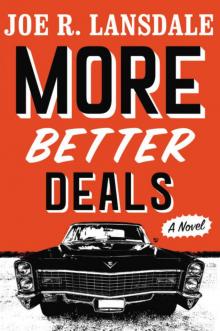 More Better Deals
More Better Deals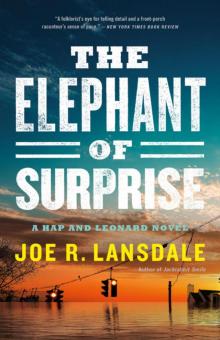 The Elephant of Surprise
The Elephant of Surprise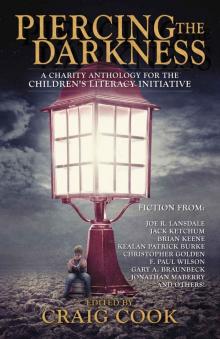 Piercing the Darkness: A Charity Horror Anthology for the Children's Literacy Initiative
Piercing the Darkness: A Charity Horror Anthology for the Children's Literacy Initiative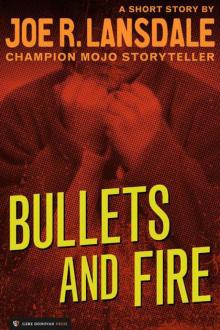 Bullets and Fire
Bullets and Fire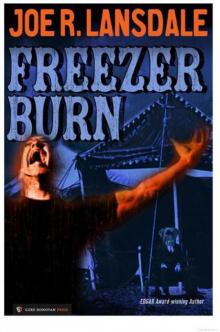 Freezer Burn
Freezer Burn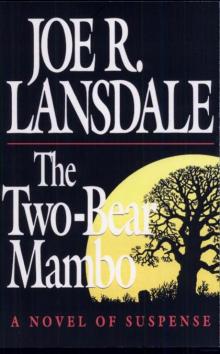 The Two-Bear Mambo
The Two-Bear Mambo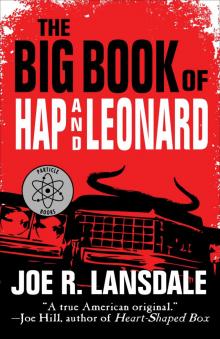 The Big Book of Hap and Leonard
The Big Book of Hap and Leonard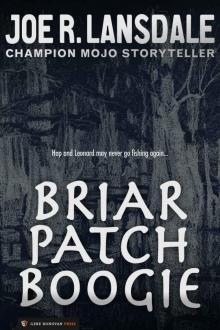 Briar Patch Boogie: A Hap and Leonard Novelette
Briar Patch Boogie: A Hap and Leonard Novelette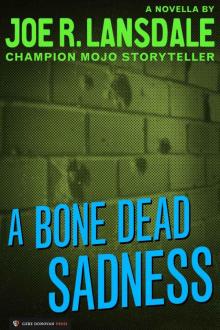 A Bone Dead Sadness
A Bone Dead Sadness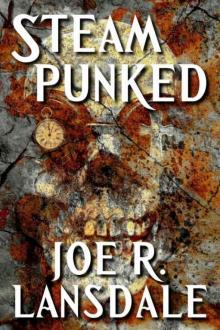 Steampunked
Steampunked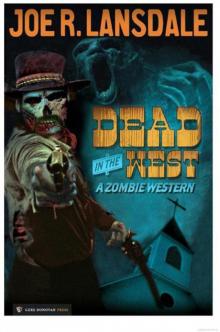 Dead in the West
Dead in the West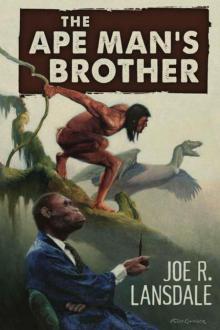 The Ape Man's Brother
The Ape Man's Brother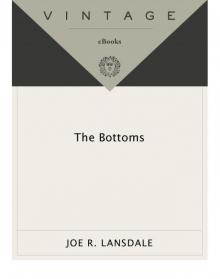 The Bottoms
The Bottoms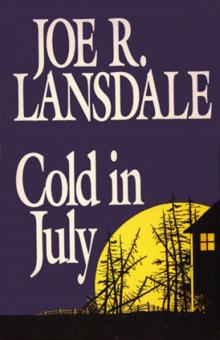 Cold in July
Cold in July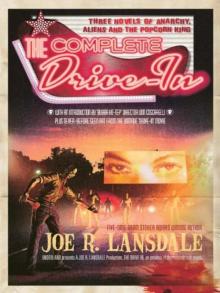 The Complete Drive-In
The Complete Drive-In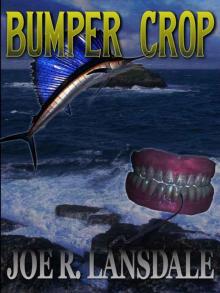 Bumper Crop
Bumper Crop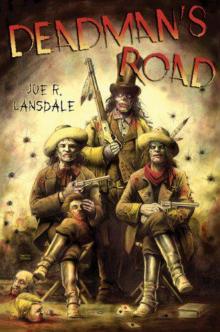 Deadman's Road
Deadman's Road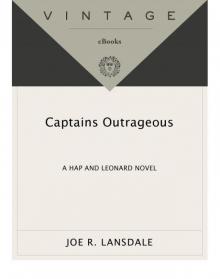 Captains Outrageous
Captains Outrageous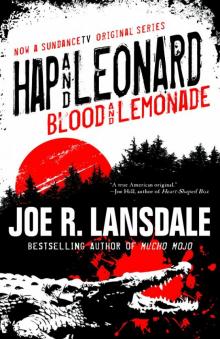 Hap and Leonard: Blood and Lemonade
Hap and Leonard: Blood and Lemonade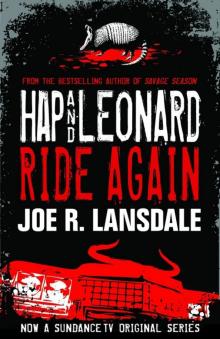 Hap and Leonard Ride Again
Hap and Leonard Ride Again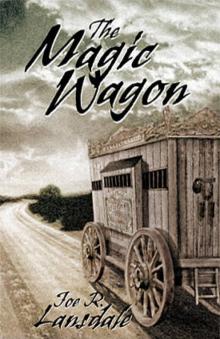 Magic Wagon
Magic Wagon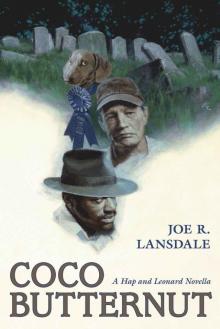 Coco Butternut
Coco Butternut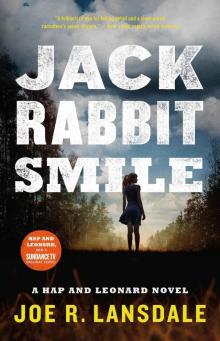 Jackrabbit Smile (Hap and Leonard)
Jackrabbit Smile (Hap and Leonard)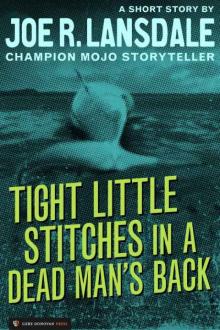 Tight Little Stitches in a Dead Man's Back
Tight Little Stitches in a Dead Man's Back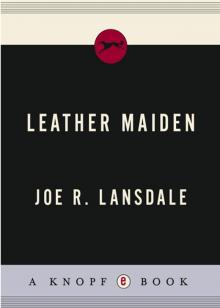 Leather Maiden
Leather Maiden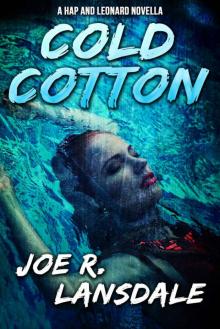 Cold Cotton: A Hap and Leonard Novella (Hap and Leonard Series)
Cold Cotton: A Hap and Leonard Novella (Hap and Leonard Series)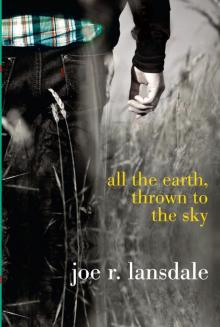 All the Earth, Thrown to the Sky
All the Earth, Thrown to the Sky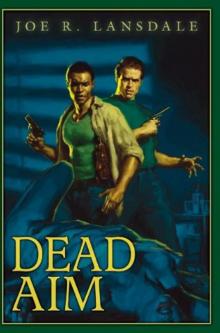 Dead Aim
Dead Aim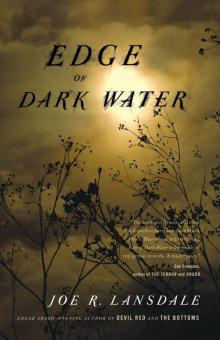 Edge of Dark Water
Edge of Dark Water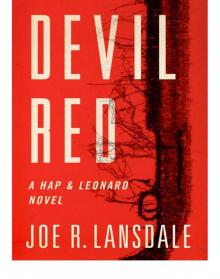 Devil Red
Devil Red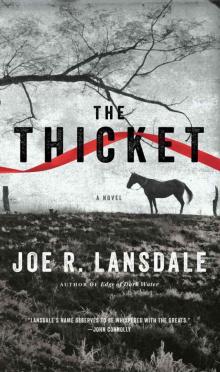 The Thicket
The Thicket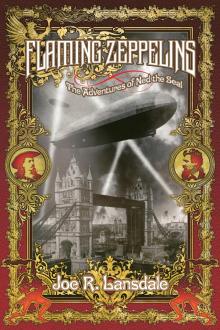 Flaming Zeppelins
Flaming Zeppelins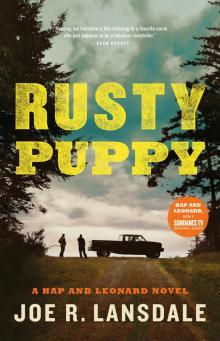 Rusty Puppy
Rusty Puppy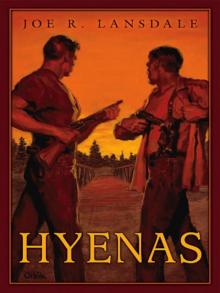 Hyenas
Hyenas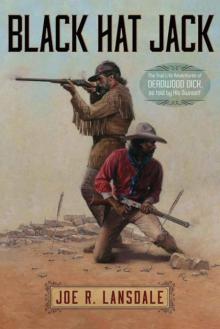 Black Hat Jack
Black Hat Jack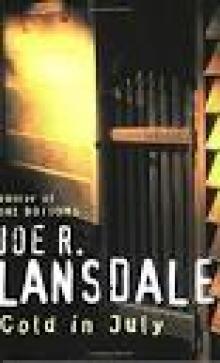 Rare Lansdale
Rare Lansdale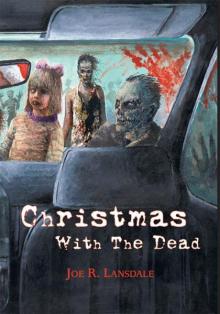 Christmas With the Dead
Christmas With the Dead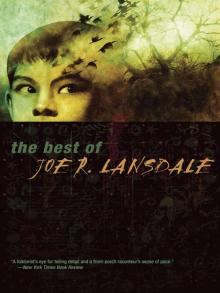 The Best of Joe R. Lansdale
The Best of Joe R. Lansdale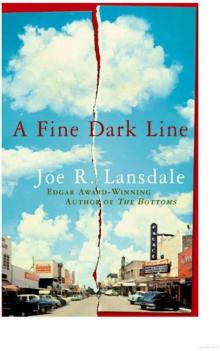 A Fine Dark Line
A Fine Dark Line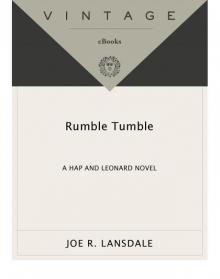 Rumble Tumble
Rumble Tumble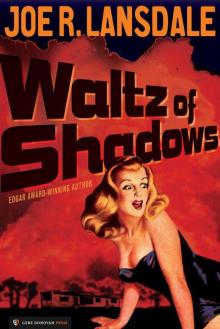 Waltz of Shadows
Waltz of Shadows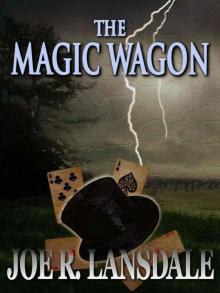 The Magic Wagon
The Magic Wagon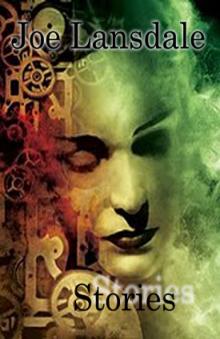 Stories (2011)
Stories (2011)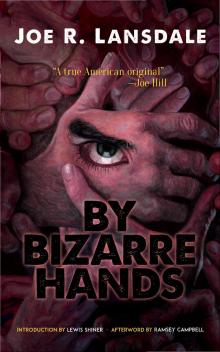 By Bizarre Hands
By Bizarre Hands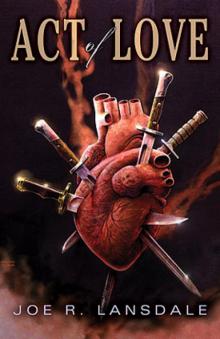 Act of Love (2011)
Act of Love (2011)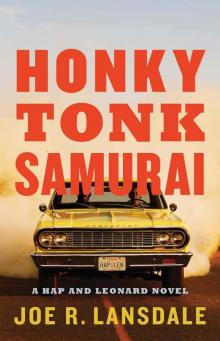 Honky Tonk Samurai (Hap and Leonard)
Honky Tonk Samurai (Hap and Leonard)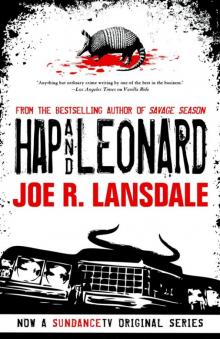 Hap and Leonard
Hap and Leonard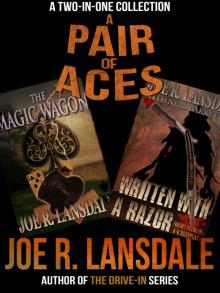 A Pair of Aces
A Pair of Aces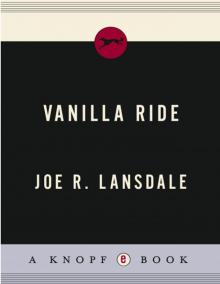 Vanilla Ride
Vanilla Ride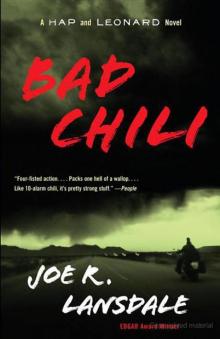 Bad Chili
Bad Chili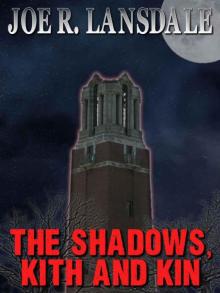 The Killer's Game
The Killer's Game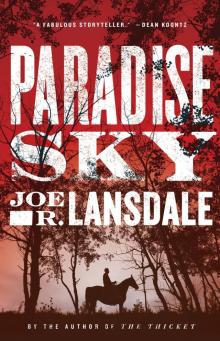 Paradise Sky
Paradise Sky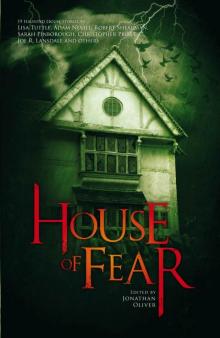 House of Fear
House of Fear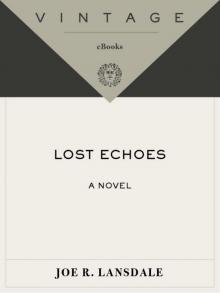 Lost Echoes
Lost Echoes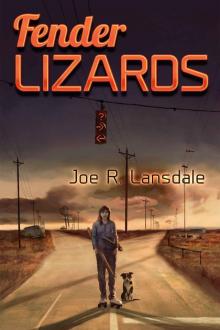 Fender Lizards
Fender Lizards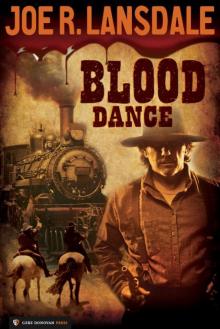 Blood Dance
Blood Dance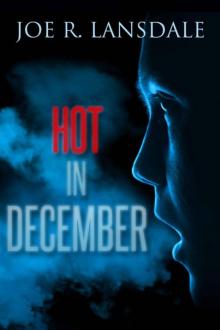 Hot in December
Hot in December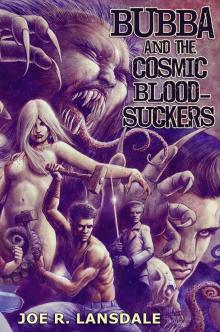 Bubba and the Cosmic Blood-Suckers
Bubba and the Cosmic Blood-Suckers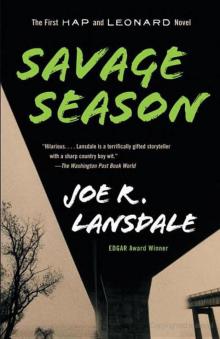 Savage Season
Savage Season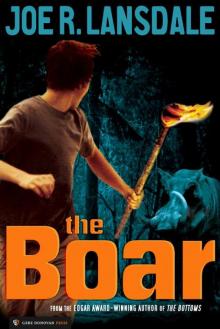 The Boar
The Boar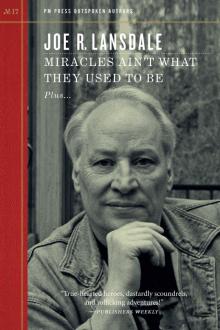 Miracles Ain't What They Used to Be
Miracles Ain't What They Used to Be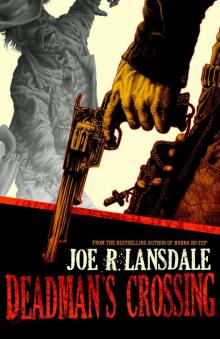 Deadman's Crossing
Deadman's Crossing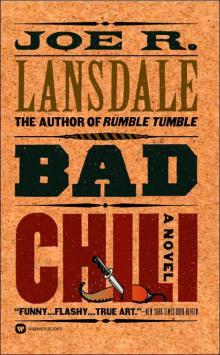 Bad Chili cap-4
Bad Chili cap-4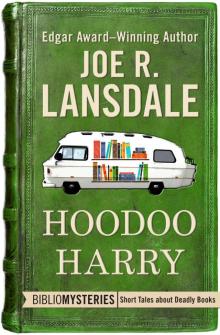 Hoodoo Harry
Hoodoo Harry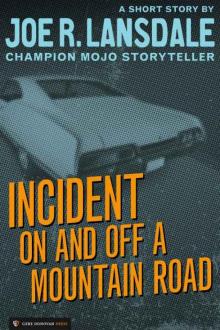 Incident On and Off a Mountain Road
Incident On and Off a Mountain Road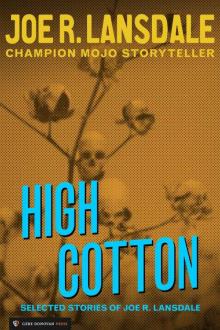 High Cotton: Selected Stories of Joe R. Lansdale
High Cotton: Selected Stories of Joe R. Lansdale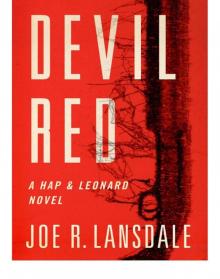 Devil Red cap-8
Devil Red cap-8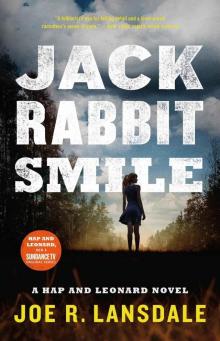 Jackrabbit Smile
Jackrabbit Smile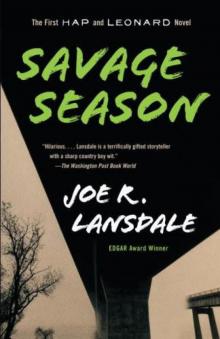 Savage Season cap-1
Savage Season cap-1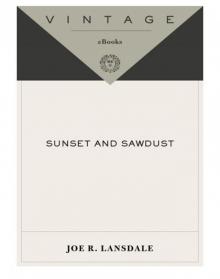 Sunset and Sawdust
Sunset and Sawdust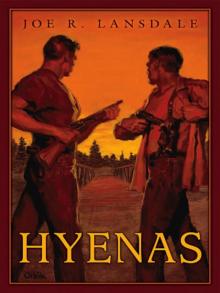 Hyenas cap-10
Hyenas cap-10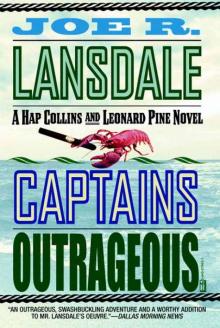 Captains Outrageous cap-6
Captains Outrageous cap-6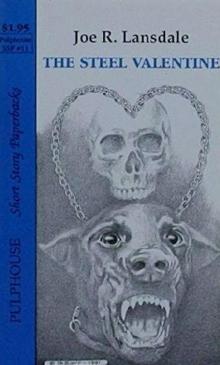 The Steel Valentine
The Steel Valentine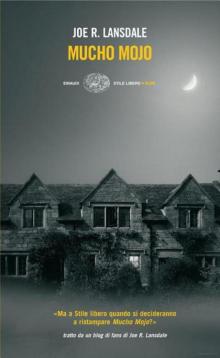 Mucho Mojo
Mucho Mojo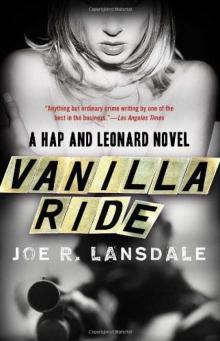 Vanilla Ride cap-7
Vanilla Ride cap-7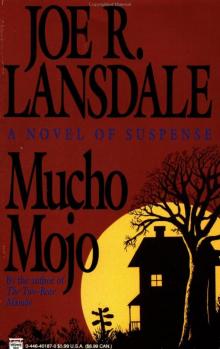 Mucho Mojo cap-2
Mucho Mojo cap-2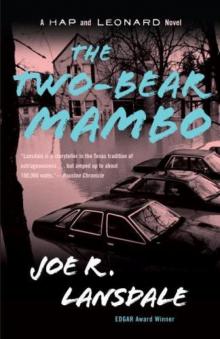 The Two-Bear Mambo cap-3
The Two-Bear Mambo cap-3